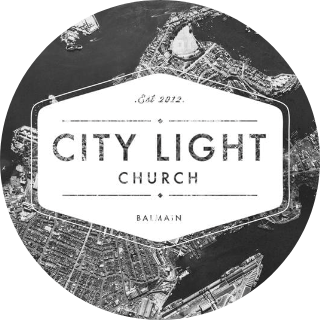GALATIANS: The Freedom of Grace.
Week 9: Self Reliance and the Gospel
Read Genesis 15:2-5
But Abram said, “Sovereign Lord, what can you give me since I remain childless and the one who will inherit my estate is Eliezer of Damascus?” 3 And Abram said, “You have given me no children; so a servant in my household will be my heir.”
4 Then the word of the Lord came to him: “This man will not be your heir, but a son who is your own flesh and blood will be your heir.” 5 He took him outside and said, “Look up at the sky and count the stars—if indeed you can count them.” Then he said to him, “So shall your offspring be.”
Read Genesis 16: 1-6
Now Sarai, Abram’s wife, had borne him no children. But she had an Egyptian slave named Hagar; 2 so she said to Abram, “The Lord has kept me from having children. Go, sleep with my slave; perhaps I can build a family through her.”
Abram agreed to what Sarai said. 3 So after Abram had been living in Canaan ten years, Sarai his wife took her Egyptian slave Hagar and gave her to her husband to be his wife. 4 He slept with Hagar, and she conceived.
When she knew she was pregnant, she began to despise her mistress. 5 Then Sarai said to Abram, “You are responsible for the wrong I am suffering. I put my slave in your arms, and now that she knows she is pregnant, she despises me. May the Lord judge between you and me.”
6 “Your slave is in your hands,” Abram said. “Do with her whatever you think best.” Then Sarai mistreated Hagar; so she fled from her.
Discuss:
1. What do Abram and Sarai’s actions in Genesis 16 show about the extent to which they believed God’s promises in Genesis 15?
2. What are the consequences of of them taking actions into their own hands to receive God’s blessings?
Read Galatians 4:21-31
1 Tell me, you who want to be under the law, are you not aware of what the law says? 22 For it is written that Abraham had two sons, one by the slave woman and the other by the free woman. 23 His son by the slave woman was born according to the flesh, but his son by the free woman was born as the result of a divine promise.
24 These things are being taken figuratively: The women represent two covenants. One covenant is from Mount Sinai and bears children who are to be slaves: This is Hagar. 25 Now Hagar stands for Mount Sinai in Arabia and corresponds to the present city of Jerusalem, because she is in slavery with her children. 26 But the Jerusalem that is above is free, and she is our mother. 27 For it is written:
“Be glad, barren woman,
you who never bore a child;
shout for joy and cry aloud,
you who were never in labor;
because more are the children of the desolate woman
than of her who has a husband.”[e]
28 Now you, brothers and sisters, like Isaac, are children of promise. 29 At that time the son born according to the flesh persecuted the son born by the power of the Spirit. It is the same now. 30 But what does Scripture say? “Get rid of the slave woman and her son, for the slave woman’s son will never share in the inheritance with the free woman’s son.”[f] 31 Therefore, brothers and sisters, we are not children of the slave woman, but of the free woman.
Discuss & Apply
This is a confusing passage, but it uses the story of Abraham, Sarai, and Hagar as an allegory for works and the gospel.
Paul is saying that works righteousness is akin to trying to bring about God’s’ blessings by our own means, whereas faith/grace is allowing God to be the one who blesses.
1. Why is religiosity/ rule keeping at odds with trusting in God’s promise?
2. Are there any examples from your own life where you have tried to take things into your own hands when you ought to have trusted in God?
3. Why is trusting in God’s divine promises ultimately more freeing than feeling like it all comes down to us?
Pray
1. Where are you struggling to trust in God’s ultimate good purpose for your life?
